
THE VOICE OF INTERNATIONAL LITHUANIA
|
VilNews has its own Google archive! Type a word in the above search box to find any article.
You can also follow us on Facebook. We have two different pages. Click to open and join.
|
Author Archive
- Posted by - (0) Comment
President Grybauskaite:
EU’s economic sanctions will only further push Belarus into Russia's sphere of influence
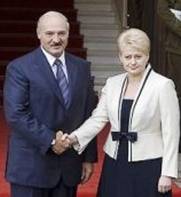
The European Union's economic sanctions against Belarus would only further push the latter into Russia's sphere of influence, Lithuanian President Dalia Grybauskaite said in an interview with Agence France-Presse (AFP).
EU economic sanctions would reduce Belarus' dependence on the West, Ms. Grybauskaite warned. She added that such sanctions could also affect ordinary people, Lithuanian news site Delfi said.
Ms. Grybauskaite repeatedly expressed opposition to international sanctions against Belarus in the past, explaining that they would prompt Minsk to seek closer ties with Russia.
While addressing EU ambassadors to Lithuania in November 2010, Ms. Grybauskaite reportedly called Alyaksandr Lukashenka the "guarantor" of Belarus' stability and independence, described Belarus' opposition as weak and said that Mr. Lukashenka enjoyed full support from the overwhelming majority of the country's population. //BelaPAN
- Bookmark :
- Digg
- del.icio.us
- Stumbleupon
- Redit it
- Posted by - (0) Comment
Impacts of the new
Putin presidency on
U.S.-Russia relations?
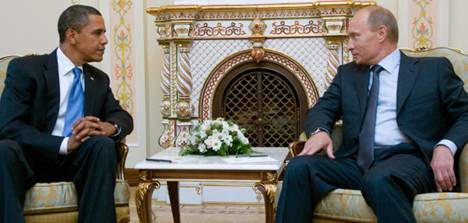
U.S. ties with Russia have been strained since Prime Minister Vladimir Putin began his re-election campaign for president. This has made it more difficult for Washington and Moscow to make progress on policy toward Syria and Iran, and we are in many fields now experiencing that the relatively warm contact between President Obama and President Medvedev is in the process of being replaced by a colder tone. Putin apparently prefers the role of counterweight more than being a world stage partner together with U.S.A.
This month marks three years since the U.S.- Russia “reset” was introduced. In March 2009, Secretary of State Hillary Clinton met with Russian Foreign Minister Sergei Lavrov in Geneva. They agreed that it was time to turn the page in relations between the two countries and start a constructive dialogue with a clean slate.
President Barack Obama has made better relations with Russia a cornerstone of his foreign policy . The so-called “reset” in relations with Russian President Dmitri Medvedev brought about a major arms-control agreement and increased cooperation on such issues as Afghanistan, Iran and Libya.
Analysts say there is currently a chill in relations between Washington and Moscow, not least due to Russia joining China in vetoing a U.N. resolution calling for Syrian president Bashar al-Assad to step aside. Secretary of State Hillary Clinton called the vote “a travesty.”
Georgetown University Russia expert Angela Stent says Vladimir Putin has been employing an old, familiar tool during his recent presidential campaign, blaming the United States for a lot of Russia’s problems..
“He has really resorted to a tactic that, of course, has been used since he became president in 2000 - and that is to invoke the United States [as the] enemy, to blame the United States for a lot of Russian problems," said Stent. "And as you saw, in the Duma elections, he then blamed Hillary Clinton, Secretary Clinton for supporting the opposition and for trying to undermine Russian stability.”
Russia expert Robert Legvold cites another example.
“When the new [U.S.] ambassador, Michael McFaul, hosted opposition figures, even though it was a quiet meeting, the authorities knew about it, had camera people there to film it," said Legvold. "And then that led the media, certainly at Putin’s behest, or media knowing what Putin would want, to sharply attack McFaul for doing this kind of thing, interfering and then accusing the opposition party of, through that channel, receiving funding from the United States.”
Mikhail Leontyev, a commentator on Russian state TV, said McFaul was close to U.S. intelligence services. Others have said McFaul has been sent to Moscow to foment an Orange Revolution in Russia.
The accusation that opposition leaders are working at the behest of the U.S. state department to generate an Orange-style revolution is an insult frequently levelled by Kremlin supporters.
"The thing is that McFaul is not a Russia specialist, but a specialist in a very specific kind of democracy promotion," Mr Leontyev said on Channel One's prime-time news programme.
Putin’s latest article, “Russia and the changing world ↑ ,” in Moskovskiye Novosti depicts the U.S. as a destabilizing and dangerous force on the world stage, which needs to be countered. Putin writes: “It seems that NATO members, especially the United States, have developed a peculiar interpretation of security that is different from ours. The Americans have become obsessed with the idea of becoming absolutely invulnerable….[this] is the root of the problem.”
In that article he rails against U.S. and NATO, alluding to the Arab Spring and support for the opposition in Syria, writing that justifications for military intervention in third-party states with the need to defend human rights is “not a noble cause,” but “elementary demagoguery.”
Given this anti-American rhetoric, questions are being raised as to what impact the new Putin presidency will have on U.S.- Russia relations.
U.S. Ambassador to Russia Michael McFaul: Introduction video
- Bookmark :
- Digg
- del.icio.us
- Stumbleupon
- Redit it
- Posted by - (1) Comment
Impacts of the new
Putin presidency on
U.S.-Russia relations?
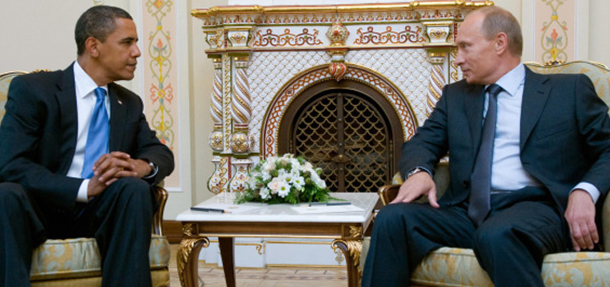
U.S. ties with Russia have been strained since Prime Minister Vladimir Putin began his re-election campaign for president. This has made it more difficult for Washington and Moscow to make progress on policy toward Syria and Iran, and we are in many fields now experiencing that the relatively warm contact between President Obama and President Medvedev is in the process of being replaced by a colder tone. Putin apparently prefers the role of counterweight more than being a world stage partner together with U.S.A.
This month marks three years since the U.S.- Russia “reset” was introduced. In March 2009, Secretary of State Hillary Clinton met with Russian Foreign Minister Sergei Lavrov in Geneva. They agreed that it was time to turn the page in relations between the two countries and start a constructive dialogue with a clean slate.
President Barack Obama has made better relations with Russia a cornerstone of his foreign policy . The so-called “reset” in relations with Russian President Dmitri Medvedev brought about a major arms-control agreement and increased cooperation on such issues as Afghanistan, Iran and Libya.
Analysts say there is currently a chill in relations between Washington and Moscow, not least due to Russia joining China in vetoing a U.N. resolution calling for Syrian president Bashar al-Assad to step aside. Secretary of State Hillary Clinton called the vote “a travesty.”
Georgetown University Russia expert Angela Stent says Vladimir Putin has been employing an old, familiar tool during his recent presidential campaign, blaming the United States for a lot of Russia’s problems..
“He has really resorted to a tactic that, of course, has been used since he became president in 2000 - and that is to invoke the United States [as the] enemy, to blame the United States for a lot of Russian problems," said Stent. "And as you saw, in the Duma elections, he then blamed Hillary Clinton, Secretary Clinton for supporting the opposition and for trying to undermine Russian stability.”
Russia expert Robert Legvold cites another example.
“When the new [U.S.] ambassador, Michael McFaul, hosted opposition figures, even though it was a quiet meeting, the authorities knew about it, had camera people there to film it," said Legvold. "And then that led the media, certainly at Putin’s behest, or media knowing what Putin would want, to sharply attack McFaul for doing this kind of thing, interfering and then accusing the opposition party of, through that channel, receiving funding from the United States.”
Mikhail Leontyev, a commentator on Russian state TV, said McFaul was close to U.S. intelligence services. Others have said McFaul has been sent to Moscow to foment an Orange Revolution in Russia.
The accusation that opposition leaders are working at the behest of the U.S. state department to generate an Orange-style revolution is an insult frequently levelled by Kremlin supporters.
"The thing is that McFaul is not a Russia specialist, but a specialist in a very specific kind of democracy promotion," Mr Leontyev said on Channel One's prime-time news programme.
Putin’s latest article, “Russia and the changing world ↑ ,” in Moskovskiye Novosti depicts the U.S. as a destabilizing and dangerous force on the world stage, which needs to be countered. Putin writes: “It seems that NATO members, especially the United States, have developed a peculiar interpretation of security that is different from ours. The Americans have become obsessed with the idea of becoming absolutely invulnerable….[this] is the root of the problem.”
In that article he rails against U.S. and NATO, alluding to the Arab Spring and support for the opposition in Syria, writing that justifications for military intervention in third-party states with the need to defend human rights is “not a noble cause,” but “elementary demagoguery.”
Given this anti-American rhetoric, questions are being raised as to what impact the new Putin presidency will have on U.S.- Russia relations.
U.S. Ambassador to Russia Michael McFaul: Introduction video
- Bookmark :
- Digg
- del.icio.us
- Stumbleupon
- Redit it
- Posted by - (0) Comment
World Lithuanians celebrating their home country!
Lithuanians all over the globe have during the past month been busy celebrating the country's national days and more. The Lithuanian spirit is alive and well in all corners
of the world!

Johannesburg, South Africa

Frackville, Pennsylvania, USA

Stockholm, Sweden
- Bookmark :
- Digg
- del.icio.us
- Stumbleupon
- Redit it
- Posted by - (0) Comment
World Lithuanians celebrating their home country!
Lithuanians all over the globe have during the past month been busy celebrating the country's national days and more. The Lithuanian spirit is alive and well in all corners of the world!
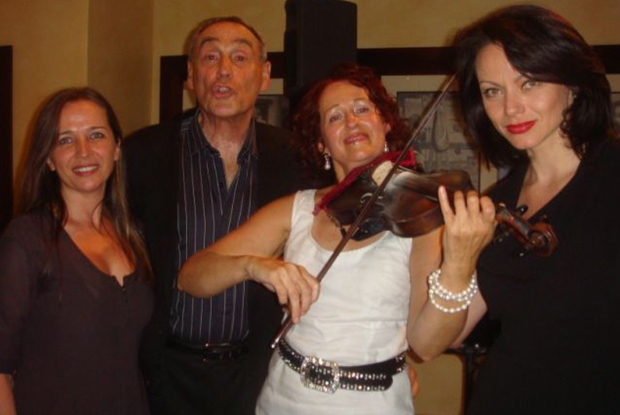
Johannesburg, South Africa

Frackville, Pennsylvania, USA
JOHN E. USALIS/Staff Photo Ann P. Domalakes, Frackville, a senior at the Franciscan University of Steubenville, presents a summary of her senior thesis on 14th century Lithuanian leader Vytautus at Sunday's Amber District meeting of the Knights of Lithuania at Annunciation BVM Church hall, Frackville. USA. http://republicanherald.com/news/knights-of-lithuania-hold-regional-meeting-in-frackville-1.1284531
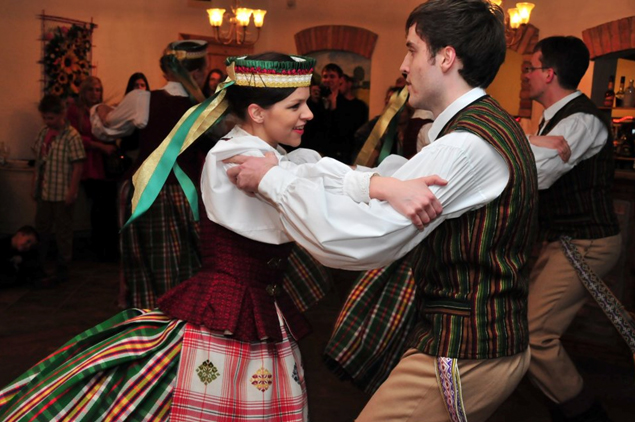
Stockholm, Sweden
- Bookmark :
- Digg
- del.icio.us
- Stumbleupon
- Redit it
- Posted by - (0) Comment
VilNews is like manna from heaven…

Just want you to know what a great thing VilNews is.. like manna from heaven...it’s the first thing I go to with my morning coffee..
Richard Vitkauskas
New York
- Bookmark :
- Digg
- del.icio.us
- Stumbleupon
- Redit it
![]()

Wish to commend you on the outstanding work that you do in bringing us, amazingly interesting articles on such a variety of subjects, together with photographic masterpieces....am now more and more interested in the history of my Fatherland, which I was blessed to visit in 2009 for my first visit and to walk in the footsteps of my ancestors.
My heartfelt thanks to you for your interest and dedication..
Aldona Martin (Martusevicius)
Australia
- Bookmark :
- Digg
- del.icio.us
- Stumbleupon
- Redit it
- Posted by - (0) Comment
COMMENTS TO OUR LAST WEEK ARTICLE:
“11 March marks the
restoration of
Lithuania's
independence – how
can the authorities
allow neo-Nazis to
dominate this important
day for the nation?”
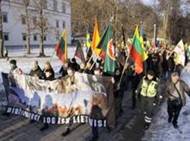
Neo-Nazis marching in Vilnius
11 March 2010.
Click HERE to read the article
_____________________________
How about a “turn your back in shame” campaign?

Richard Vitkauskas
New York
PS:
Just want you to know also what a great thing VilNews is.. like manna from heaven...it’s the first thing I go to with my morning coffee..
_____________________________
Please read the link, share it, and sign the petition

Arthur Hessel
Washington D.C.
_____________________________
I strongly protest granting neo-Nazis a permit to exploit Lithuanian Independence Day
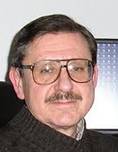
Dr. Boris Vytautas Bakunas, PhD
Chicago
_____________________________
I object

But I strongly object to her inaccurate, inflammatory statements like “...murder of about 95% of Lithuania’s Jewry during the Holocaust, largely by local collaborators...” Her claim is not supported by facts. Murdering largely was done by German SS and Gestapo.
My father was a short-lived mayor of Palanga, and when he openly objected to German inhumanity, he was removed at gunpoint from his position.
I was an 11 year old boy and I saw with my own eyes a group of Palanga’s Jews being led on the street to their death by uniformed Germans and not by any local “collaborators”.
Vytautas Sliupas
California
_____________________________
Response to Mr. Sliupas

I would like to assure Mr. Sliupas that I do not cite facts or figures irresponsibly. I base my statements on the research findings of respected historians (Timothy Snyder, Dina Porat, to name just a few).
To address Mr. Sliupas’s assertion that “ Murdering largely was done by German SS and Gestapo,” let me refer to some events in Palanga. According to the Lithuanian Holocaust Atlas, published in Vilnius in 2011, the mass murder of 111 Palanga Jews on June 27, 1941 was indeed carried out by German units. That mass grave is at Vytauto Street (p. 94).
The mass murders of two to three hundred Palanga Jews carried out in Kunigiskiai between June 26th and October 12th was led by district police chief of Kretinga P. Jakys (Lukys) and the city police chief of Palanga J. Adomaitis in cooperation with German forces (p. 95). Please refer to the links below:
http://holocaustatlas.lt/EN/#a_atlas/search/bendri=PALANGA.vietove=.aukos=.from_year=0.from_month=0.from_day=.to_year=0.to_month=0.to_day=.killers=/page/1/item/71
http://holocaustatlas.lt/EN/#a_atlas/search/bendri=PALANGA.vietove=.aukos=.from_year=0.from_month=0.from_day=.to_year=0.to_month=0.to_day=.killers=/page/1/item/72/
While great credit is due to Vytautas Sliupas's father, there is no use being in denial about the massive level of collaboration and participation. A recent oral history project includes survivor memories of the Lithuanian "rebel" forces' actions toward the Jews as soon as war broke out in Palanga:
http://www.youtube.com/watch?v=34RxJtf02gU&feature=channel_video_title (in Yiddish with summary in English in the description box)
Olga Zabludoff
Washington, DC
- Bookmark :
- Digg
- del.icio.us
- Stumbleupon
- Redit it
- Posted by - (0) Comment
The date 11 March will forever remain very
significant for both Japan and Lithuania
Japan mourning
2011 tsunami, Lithuania
marking 1990 freedom

A devastating earthquake and tsunami on 11 March 2011 made Japan shake to its core. Thousands of people perished. In addition to massive property damage, the Fukushima nuclear power station sustained critical damage to its reactors which, in turn, caused reactor melt downs and uncontrolled releases of radiation/radioactive materials.
11 March is a date that will forever remain significant in both Japan and Lithuania. It was on this date in 1990 that the members of the Lithuanian Parliament signed the Act of Independence, which was the first major step towards the country's liberation from the Soviet Union after 50 years of living under occupation.
And it was on this date in 2011 that a large earthquake and subsequent tsunami hit northern Japan in a most dramatic, damaging way. One of Japan's nuclear power plants was hit hard, with the result that radiation devastated a large area and many people’s lives.
Only two of Japan's 54 reactors are now running while those shut down for regular inspections undergo special tests to check their ability to withstand similar disasters.
In the midst of all this, Japan and Lithuania have signed an agreement on nuclear cooperation, as the industrial giant Hitachi has been selected to build a brand new nuclear power plant in Lithuania, expected ready by 2020. While the meltdown crisis in Fukushima has raised awareness around the world of the dangers of nuclear power, Lithuania, with its limited natural resources, appears to have little choice but to rely on atomic energy to reduce its heavy reliance on natural gas from Russia.
- Bookmark :
- Digg
- del.icio.us
- Stumbleupon
- Redit it
- Posted by - (1) Comment
The date 11 March will forever remain very
significant for both Japan and Lithuania
Japan mourning
2011 tsunami, Lithuania
marking 1990 freedom

A devastating earthquake and tsunami on 11 March 2011 made Japan shake to its core. Thousands of people perished. In addition to massive property damage, the Fukushima nuclear power station sustained critical damage to its reactors which, in turn, caused reactor melt downs and uncontrolled releases of radiation/radioactive materials.
11 March is a date that will forever remain significant in both Japan and Lithuania. It was on this date in 1990 that the members of the Lithuanian Parliament signed the Act of Independence, which was the first major step towards the country's liberation from the Soviet Union after 50 years of living under occupation.
And it was on this date in 2011 that a large earthquake and subsequent tsunami hit northern Japan in a most dramatic, damaging way. One of Japan's nuclear power plants was hit hard, with the result that radiation devastated a large area and many people’s lives.
Only two of Japan's 54 reactors are now running while those shut down for regular inspections undergo special tests to check their ability to withstand similar disasters.
In the midst of all this, Japan and Lithuania have signed an agreement on nuclear cooperation, as the industrial giant Hitachi has been selected to build a brand new nuclear power plant in Lithuania, expected ready by 2020. While the meltdown crisis in Fukushima has raised awareness around the world of the dangers of nuclear power, Lithuania, with its limited natural resources, appears to have little choice but to rely on atomic energy to reduce its heavy reliance on natural gas from Russia.
Japan today – 11 March 2012
Through silence and prayers, people across Japan on Sunday remembered the massive earthquake and tsunami that struck the nation one year ago, killing just over 19,000 people and unleashing the world's worst nuclear crisis in a quarter century.
A moment of silence was observed at 2:46 p.m. -- the exact time the magnitude-9.0 quake struck on March 11, 2011.
In the devastated northeastern coastal town of Rikuzentakata, a siren sounded and a Buddhist priest in a purple robe rang a huge bell at a damaged temple overlooking a barren area where houses once stood.
At the same time in Tokyo's National Theater, Emperor Akihito, Empress Michiko and Prime Minister Yoshihiko Noda stood in silence with hundreds of other people dressed in black at a memorial service.
An anti-nuclear protest took place in downtown Tokyo on Sunday amid growing public opposition to atomic power in the wake of the disaster, the worst since Chernobyl in 1986.
The quake was the strongest recorded in Japan's history, and set off a tsunami that towered more than 20 meters (65 feet) in some spots along the northeastern coast, destroying tens of thousands of homes and wreaking widespread destruction.
Today, some 325,000 people rendered homeless remain in temporary housing. While much of the debris has been gathered into massive piles, very little rebuilding has begun.
The government says the damaged Fukushima Dai-ichi nuclear plant, where three reactor cores melted down after the tsunami knocked out their vital cooling systems, is stable and that radiation coming from the plant has subsided significantly. But the plant's chief acknowledged to journalists visiting the complex recently that it remains in a fragile state, and makeshift equipment — some mended with tape — could be seen keeping crucial systems running.
Only two of Japan's 54 reactors are now running while those shut down for regular inspections undergo special tests to check their ability to withstand similar disasters. They could all go offline by the end of April if none are restarted before then.
The Japanese government has pledged to reduce reliance on nuclear power, which supplied about 30 percent of the nation's energy needs before the disaster, but says it needs to restart some nuclear plants to meet Japan's energy needs during the transition period.
Japan's prime minister has acknowledged failures in the government's response to the disaster, being too slow in relaying key information and believing too much in "a myth of safety" about nuclear power.
"We can no longer make the excuse that what was unpredictable and outside our imagination has happened," Prime Minister Yoshihiko Noda told a group of reporters last weekend. "Crisis management requires us to imagine what may be outside our imagination."
Lithuania today – 11 March 2012
Lithuania was today celebrating the 22nd anniversary of declaring independence from the former Soviet Union, the first of the iron-curtain states so to do after Lithuania had been swallowed up by Moscow in 1940 under the Molotov-Ribbentrop pact between Nazi Germany and the Soviet Union. Many believe Lithuania’s declaration helped accelerate the fall of the Soviet regime itself.
Professor Vytautas Landsbergis, Chairman of Lithuania’s Supreme Council, was the one who proclaimed Lithuania independent late evening on the 11th of March 1990. 124 members of the Supreme Council had voted for the breakaway. Nobody voted against.
Despite the reformist moves by Mikhail Gorbachev in Moscow, Lithuania’s decision angered the Soviet leadership. In January ’91, the tensions spilled over. Soviet tanks killed 14 people in clashes at the TV tower in Vilnius.
But later that year in the Soviet Union hardliners failed to overthrow Gorbachev, and the movement towards democracy gained momentum.
By early 1993, the Soviet tanks were beating a retreat. The international community had recognised Lithuania’s independence.
11 March has since 1990 been celebrated as Lithuania's second national day, after 16 February which marks the country's declaration of independence of 1918. Unfortunately, the country's authorities have for several years allowed neo-Nazi elements make their mark on this important freedom day.
This year's celebration was different in a positive way, seeing thousands of freedom-loving and open-minded people filling up the country's main street, Gedimino Avenue in Vilnius, to a worthy demonstration of the fact that Lithuania is again a land of wisdom and maturity.
- Bookmark :
- Digg
- del.icio.us
- Stumbleupon
- Redit it
- Posted by - (0) Comment

Lithuania’s nuclear path

Nuclear partnership: Masaharu Hanyu, vice president and executive officer of Hitachi Ltd. (left), and Zygimantas Vaiciunas, head of Lithuania's concession tender commission and the vice minister of energy, sign a tentative concession treaty in December 2011. HITACHI LTD.
By HIROKO NAKATA
Staff writer
While the meltdown crisis in Fukushima has raised awareness around the world of the dangers of nuclear power, Lithuania, with its limited natural resources, appears to have little choice but to rely on atomic energy to reduce its heavy reliance on natural gas from Russia.
"We now import about 70 percent of electricity from other countries to Lithuania," Lithuanian Prime Minister Andrius Kubilius said in a recent interview in Tokyo. "We do not have oil resources, gas resources and coal (resources). So for us, nuclear energy is an obvious choice."
Lithuania plans to build a nuclear plant in Visaginas by 2020 and reached in December a tentative agreement on the construction with Hitachi Ltd. and its Hitachi-GE Nuclear Energy Ltd. unit.
- Bookmark :
- Digg
- del.icio.us
- Stumbleupon
- Redit it
- Posted by - (1) Comment

Lithuania’s nuclear path

Nuclear partnership: Masaharu Hanyu, vice president and executive officer of Hitachi Ltd. (left), and Zygimantas Vaiciunas, head of Lithuania's concession tender commission and the vice minister of energy, sign a tentative concession treaty in December 2011. HITACHI LTD.
By HIROKO NAKATA
Staff writer
While the meltdown crisis in Fukushima has raised awareness around the world of the dangers of nuclear power, Lithuania, with its limited natural resources, appears to have little choice but to rely on atomic energy to reduce its heavy reliance on natural gas from Russia.
"We now import about 70 percent of electricity from other countries to Lithuania," Lithuanian Prime Minister Andrius Kubilius said in a recent interview in Tokyo. "We do not have oil resources, gas resources and coal (resources). So for us, nuclear energy is an obvious choice."
Lithuania plans to build a nuclear plant in Visaginas by 2020 and reached in December a tentative agreement on the construction with Hitachi Ltd. and its Hitachi-GE Nuclear Energy Ltd. unit.
The prime minister was recently in Japan on a five-day visit to meet Hitachi officials as well as members of Japan's business community.
Speaking about the March 11 disasters, he said that Lithuania was "deeply touched" by the disaster and tragedy suffered by the Japanese people.
In 2009, the Baltic state shut down its Ignalina nuclear power plant, one of Europe's largest, which was built in the Soviet era. The European Union required the closure of the plant's two reactors, which were similar in design to those at the Chernobyl power plant, as a condition of entry into the EU.
Since the closure, power costs have reportedly risen by as much as 20 percent.
Asked if the Fukushima crisis affected Lithuania's plan to build a new nuclear power plant, the prime minister said: "Of course, the natural disaster puts additional requests on the safety of technologies."
Kubilius also said the country aims to generate 20 to 25 percent of its electricity through wind power, biomass and other renewables in the future.
"But in Europe, only a few countries decided to stop development of nuclear projects. Quite many countries, especially in our Baltic region, are continuing development of nuclear projects," he said, citing Sweden, Finland and Poland, in addition to Lithuania and the two other Baltic states as examples.
Kubilius said any success Hitachi has in building the Visaginas nuclear plant will only help the Japanese heavy machinery maker win more tenders for other nuclear projects in these European countries.
Kubilius said he is sure Hitachi will pass its advanced technology standards on to Europe.
With the concession agreement tentatively signed in December, the prime minister said his government hopes the official signing will come in a couple of months. The Lithuanian government also hopes all necessary approval procedures will be completed by midyear.
How much Hitachi invests is still under negotiation, he said. Other investors include Lithuania, Latvia, Estonia and possibly Poland, he said.
He also stressed the strong support of nuclear power among the Lithuanian people.
"In general, more than 60 percent of Lithuanians are in favor of nuclear energy. In the local town of Visaginas, 90 percent of people are in favor of nuclear energy," he said. "For us, nuclear energy brings real energy independence."
- Bookmark :
- Digg
- del.icio.us
- Stumbleupon
- Redit it
- Posted by - (0) Comment
Growing up in a
nuclear shadow

By Kristen Iversen
I GREW up in Arvada, Colorado, in the shadow of a nuclear bomb factory, so I read the just-released report on the Fukushima meltdown in Japan with special interest. Coinciding with the first anniversary of the Fukushima Daiichi disaster, the 400-page report details the extensive misinformation supplied to the public by the Tokyo Electric Power Company (Tepco) in collusion with Japanese officials.
The Japanese government’s failure to warn citizens about radioactive danger put the entire city of Tokyo at health risk — and the rest of us as well. The report, which was written by an independent investigative panel established by the Rebuild Japan Initiative Foundation (published March 1 in the Bulletin of the Atomic Scientists), bluntly states that the much vaunted “absolute safety” of nuclear power is no more than a “twisted myth.”
The threat from nuclear power plants is twofold: grand scale catastrophe and continuing health problems connected with radioactive contamination in our air, water, soil and food supply — both short-term, high-level contamination and the long-term, low-level kind.
- Bookmark :
- Digg
- del.icio.us
- Stumbleupon
- Redit it
Baltic Prime Ministers pledge nuclear support
- Posted by - (0) Comment
![]()
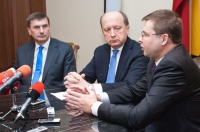
Baltic PMs converse
(Image: BFL/Tomo Lukšio)
The prime ministers of Estonia, Latvia and Lithuania have reaffirmed their commitment to build a new nuclear power plant serving the Baltic states and have promised to work together to make sure progress is maintained.
Prime ministers Andrus Ansip (Estonia), Valdis Dombrovskis (Latvia) and Andrius Kubilius (Lithuania) confirmed their support for the construction of the Visaginas plant at a two-day meeting in Prienai, Lithuania.
The meeting was also attended by representatives from Hitachi-GE, the strategic investor in the project, and from the European Commission.
The prime ministerial trio formally welcomed progress since their last gathering in November 2011, and went on to reaffirm their support for Visaginas "for the security of power supply in our countries" and for the three energy companies involved in the project – Eesti Energia, Latvenergo and Visagino Atominė Elektrinė (VAE).
The ministers said they would be encouraging the companies to finalise negotiations in a "timely manner" to ensure that the next milestone for the project - approval of a nuclear plant concession agreement by the Lithuanian parliament - is met by June 2012.
Two Soviet-era RBMK nuclear reactors at Ignalina in Lithuania were forced to close as a condition of Lithuania's accession to the European Union, leaving the region heavily dependent on electricity imports. The planned new Visaginas plant would give the countries the chance to diversify their energy portfolio and ensure greater energy security: at present Lithuania imports almost 90% of its gas from Russia.
- Bookmark :
- Digg
- del.icio.us
- Stumbleupon
- Redit it
![]()

Sveinung Stohle,
President and Chief Executive
of Hoegh LNG
* Norway's Hoegh LNG signs deal to supply FSRU to Lithuania
* LNG supply tender expected in Q2 2012
* LNG imports to end Gazprom's monopoly, put pressure on prices
Norwegian LNG service company Hoegh LNG on Friday signed a deal to supply a floating LNG import platform to Lithuania, in a move that will cut the Baltic country's dependence on gas imports from Russia.
The deal includes the 10-year lease and operation of a 170,000 cubic meters floating storage and regasification vessel (FSRU) with Lithuania's majority state-owned terminal Klaipedos Nafta at a cost of $156,200 per day.
"This is a market price... It's a fair deal for us and for Klaipedos Nafta," Sveinung Stohle, President and Chief Executive of Hoegh LNG, who signed the deal, told journalists in Vilnius.
LNG deliveries will end Gazprom's supply monopoly in the Baltic state

Energy Minister
Arvydas Sekmokas
The country's Energy Minister Arvydas Sekmokas hailed the deal as "prehaps the greatest achievement" in the energy sector since the Baltic state built the floating Butinge oil terminal in 1999.
When Russia cut oil supplies via pipeline in 2006, the country's refiner, now a part of Poland's PKN Orlen, was able to switch to sea crude deliveries.
"Russia Gazprom's excessively high gas prices forced us to develop this LNG terminal, which would help to assure security of supply... and to create a gas market," Sekmokas told journalists.
"That should help to cut gas prices... Today we have no leverage on Gazprom's prices," he added.
- Bookmark :
- Digg
- del.icio.us
- Stumbleupon
- Redit it
VilNews e-magazine is published in Vilnius, Lithuania. Editor-in-Chief: Mr. Aage Myhre. Inquires to the editors: editor@VilNews.com.
Code of Ethics: See Section 2 – about VilNews. VilNews is not responsible for content on external links/web pages.
HOW TO ADVERTISE IN VILNEWS.
All content is copyrighted © 2011. UAB ‘VilNews’.

 Click on the buttons to open and read each of VilNews' 18 sub-sections
Click on the buttons to open and read each of VilNews' 18 sub-sections 






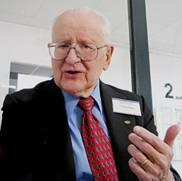













.jpg)



